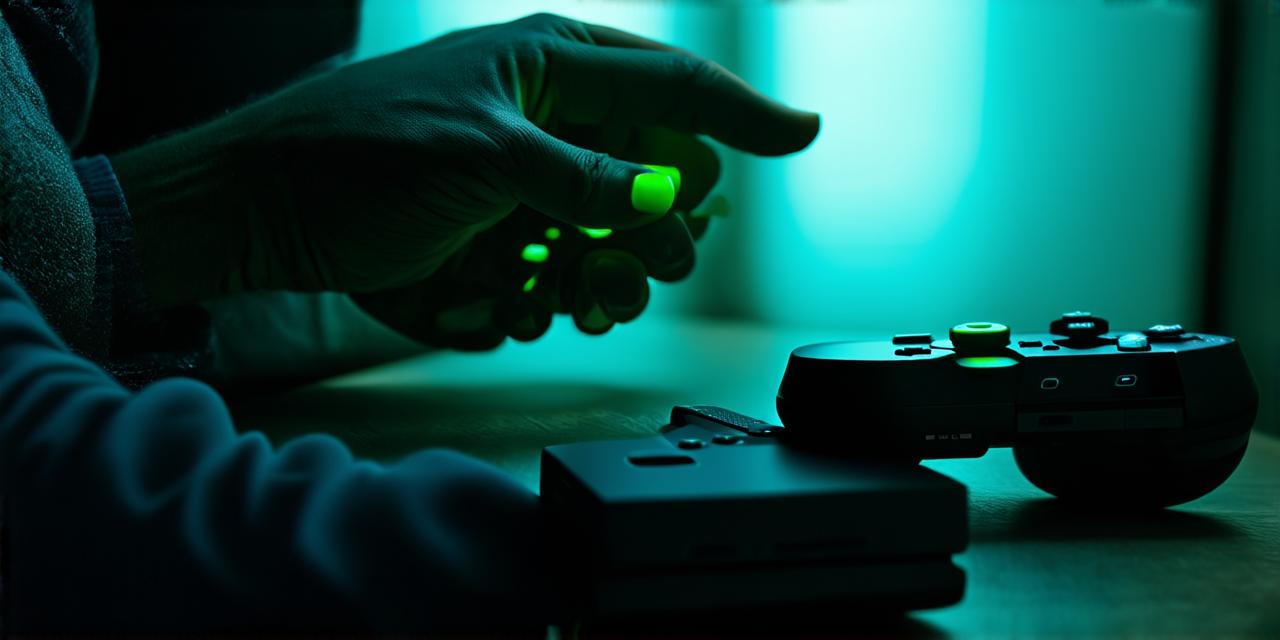Understanding Video Game Addiction
Video game addiction is defined as a pattern of compulsive and excessive preoccupation with playing video games, leading to neglect of other important responsibilities. According to the American Psychiatric Association, this behavior can be classified as an impulse-control disorder or as an obsessive-compulsive disorder.
Symptoms of Video Game Addiction

The symptoms of video game addiction can vary from person to person, but some of the most common warning signs include:
- Spending an excessive amount of time gaming each day
- Becoming increasingly irritable or aggressive when they can’t play
- Neglecting personal responsibilities in favor of gaming
- Prioritizing gaming over other important activities, such as work, school, and relationships
- Feeling a sense of urgency to continue playing, even when tired or hungry
- Experiencing cravings for gaming, similar to those experienced by drug addicts
Causes of Video Game Addiction
There are several factors that can contribute to video game addiction, including social isolation, stress, anxiety, and depression. For some players, gaming becomes a way to escape from these negative emotions and feelings. Other factors that may increase the risk of developing an addiction include:
- Age: Younger people are more susceptible to developing an addiction, as their brains are still developing and they may not have fully formed coping mechanisms.
- Genetics: Some research suggests that a genetic predisposition may play a role in developing an addiction.
- Lack of social support: People who lack social support or feel disconnected from others may turn to gaming as a way to cope with their feelings of loneliness and isolation.
- Poor sleep habits: Lack of sleep can contribute to irritability, anxiety, and other negative emotions that may lead to excessive gaming.
Strategies for Helping Players Quit Gaming
There are several strategies that game developers can use to help their players overcome video game addiction. Here are a few ideas:
-
Set limits on gameplay: One of the most effective ways to prevent video game addiction is to set limits on how much time players can spend gaming each day. You can do this by setting a specific time of day when players can play, or by limiting the amount of time they can spend playing in a single sitting.
-
Encourage breaks: If your players are prone to becoming addicted to gaming, it’s important to encourage them to take regular breaks. This can be as simple as setting a timer and reminding them to stop playing after a certain period of time, or by providing incentives for taking breaks, such as bonus points or rewards.
-
Provide alternative activities: Many people turn to gaming as a way to escape from social isolation or other negative emotions. By providing alternative activities that allow players to connect with others and feel a sense of accomplishment, you can help them break the cycle of addiction. This could include team-building exercises, group projects, or social events organized by your company.
-
Offer support: If your players are struggling with video game addiction, it’s important to offer them the support they need to overcome it. This could include access to counseling services, support groups, or other resources that can help them manage their addiction and develop healthier coping mechanisms.
-
Educate your players: Finally, one of the most effective ways to prevent video game addiction is to educate your players about the risks and consequences of excessive gaming. By providing them with information about the impact of gaming on their mental and physical health, you can help them make more informed decisions about how much time they spend playing.
FAQs
1. What are some warning signs of video game addiction?
Some warning signs of video game addiction include spending an excessive amount of time gaming each day, becoming increasingly irritable or aggressive when they can’t play, and neglecting personal responsibilities in favor of gaming.
2. What are the underlying causes of video game addiction?
Video game addiction is often fueled by social isolation, stress, anxiety, and depression. For some players, gaming becomes a way to escape from these negative emotions and feelings.



